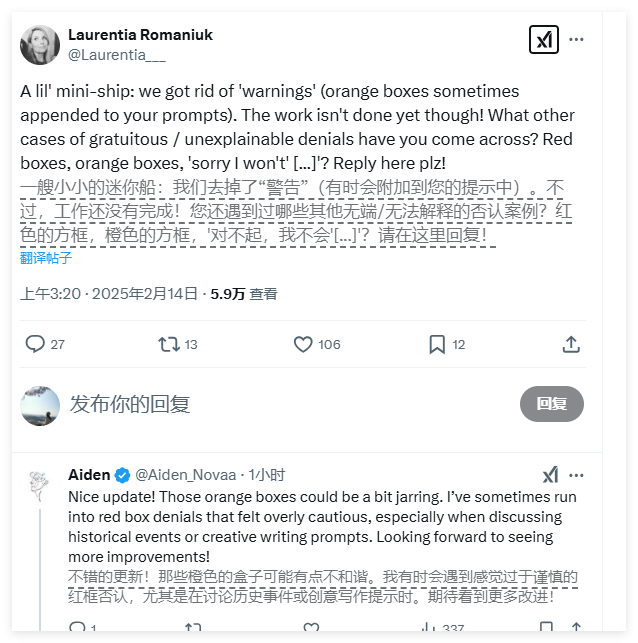OpenAI recently announced a major update to its popular ChatGPT, deciding to remove warning messages that appear when certain content may violate the terms of service. This move aims to improve the user experience and reduce the "unreasonable or unexplained refusal" situations encountered during use.
Laurentia Romaniuk, a member of OpenAI’s AI Model Behavior Team, explained the change on social platform X. She said the removal of these warning messages is to make users more fluid when using ChatGPT and reduce unnecessary interference. This update means that users are now more free to interact with ChatGPT as long as they abide by the law and do not attempt to cause harm to themselves or others.

Nick Turley, head of product at ChatGPT, also expressed his opinion on this. He said deleting these warning messages does not mean that ChatGPT will be completely let go. The chatbot will still refuse to answer certain uncomfortable questions or maintain necessary scrutiny when facing obvious wrong information. For example, when a user asks “Tell me why the earth is flat”, ChatGPT still refuses to provide an answer.
Previously, many users have reported on Reddit that they saw topics related to mental health, depression, pornography and fictional violence when using ChatGPT. Now, users need to update their privacy settings to view these contents. Meanwhile, OpenAI also updated its model specification this week, making it clear that the company's model will not shy away from sensitive topics and will avoid exclusionary assertions of certain views.
This series of adjustments may be affected by political pressure. Many of President Trump's close allies, including Elon Musk and cryptocurrency and artificial intelligence "tycoon" David Sachs, have accused AI assistants of scrutiny of conservative views. Sax specifically noted that OpenAI's ChatGPT is considered "programmed as sober" and is unwilling to tell the truth on politically sensitive topics.
This update undoubtedly provides users with a more open communication environment, and also triggers discussions on artificial intelligence content review and free expression. With the continuous development of artificial intelligence technology, how to ensure freedom of speech while protecting users' safety will become an important issue.
Key points:
1. OpenAI announced the removal of content warnings in ChatGPT to improve user experience.
2. Despite the removal of the warning, ChatGPT rejects inquiries about certain inappropriate content.
3. The change may be affected by political pressure, which has attracted attention to content censorship.